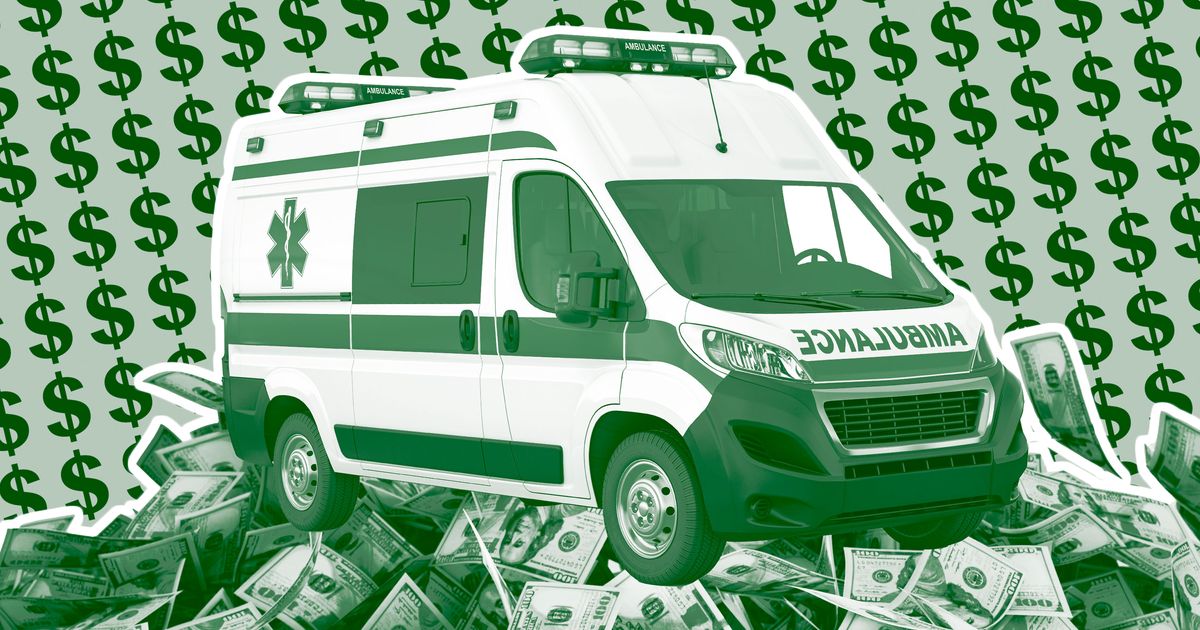
Personal-finance columnist Charlotte Cowles asks the nosy, revealing, sometimes uncomfortable questions about money so you don’t have to.
Photo-Illustration: by The Cut; Photos: Getty Images
It’s almost open enrollment season, the annual American routine of wondering why the hell we pay so much for health insurance that isn’t even that good. This year, it’s not just worse than ever — for many people, health insurance might become unaffordable, full stop.
“I’m used to my health-insurance costs going up,” said one friend — a woman in her 40s — “but this is insane.” She recently got a letter from her insurance company saying that her premiums would increase by $100 per month in 2026. She’s outraged, but she’s also stuck — it’s still the cheapest option she can find.
She might be one of the lucky ones. If you get your health insurance through the Affordable Care Act marketplace — as 24 million Americans do — then your monthly premiums could potentially more than double in 2026. For the average family enrolled in an ACA plan, that would look like a 114 percent increase from an average of $888 in 2025 to $1,904 in 2026, according to a report from KFF, a nonprofit organization that collects and analyzes health-related data. And that’s before anyone even goes to a single doctor’s appointment.
Yes, the government is largely to blame; ACA enhanced premium tax credits are set to expire at the end of this year, and if they do — despite Democrats shutting down the government in protest — then millions of Americans across the economic spectrum will see their health-insurance rates soar. It would be nice if someone stopped this from happening, but so far, no dice.
That’s only one piece of the problem, though. Even if you get your health insurance through your employer (and not the ACA marketplace), you’re going to see higher-than-normal price increases. Employer-sponsored health-insurance premiums are expected to jump 6 to 7 percent, with some analyses showing an average employee cost increase of around 9 percent. That’s the biggest spike in more than 15 years, according to projections from Mercer, which conducts an annual national survey of employer-sponsored health plans.
“This is not a normal year or a normal situation, no matter whether you are signing up for Medicare or an Affordable Care Act plan or have commercial or employer-based insurance,” says Cindy George, who analyzes health-care costs for GoodRx, a health-care platform that provides telehealth services and prescription medications. “There’s upheaval across the board.”
The reasons for this are complex. “There’s a compounding effect,” says Elizabeth Fowler, a professor at Johns Hopkins Bloomberg School of Public Health. “The cost of health care and utilization has gone up, and that’s affecting everybody’s premiums.” (Experts also point to the aging American population and growing prevalence of chronic medical conditions, which drive up the need for medical services and, in turn, the cost of everyone’s insurance.) “And if the enhanced subsidies for the ACA exchange policies expire, that will raise premiums even more,” she adds. But these costs won’t hit everyone equally: “It varies by family, by geography, by coverage that you get. So there’s a lot of factors that go into figuring out what, exactly, the impact on you as an individual or a family is going to be.”
What’s more, there’s less competition in the health-insurance industry these days, allowing fewer companies to dominate the market and raise prices because they can. “Our current government is not keen on regulation,” says Heather Boneparth, a former lawyer who worked in the insurance industry for a decade before she became a director at Bone Fide Wealth, a financial advisory firm. “And without the government putting checks and pressures on these companies, then they will pass their rising costs onto us, which is a piece of what we’re seeing.”
Whether or not something can or will be done about this, we’ve got a deadline: Everyone needs to choose a health plan before their open enrollment period ends. If you get health insurance through your employer, that could be soon; if you’re getting it through the ACA marketplace, you have until January. No matter what, though, your options won’t be great. “There are no good deals in health insurance,” says Boneparth. But there are ways to make a more informed choice. Here are the steps for finding a plan that will hopefully cost you the least amount of money and stress.
Before you look at your options, consider your current health-care needs, says George. Sure, you can’t anticipate a freak accident, but you probably have a general idea of what medical care you’ll need in 2026. George recommends asking yourself the following questions: Are there any doctors you must see or that you strongly prefer? Do you or anyone in your family require specialized care for a chronic medical problem? Do you think you’ll need surgery or another procedure soon? Are you pregnant or planning to be? Do you see any health-care providers that you want to make sure are covered by your insurance? Do you travel a lot, which might necessitate seeing doctors that are out-of-network? These are all important factors in choosing your plan.
If you’re relatively healthy and don’t visit the doctor beyond annual checkups or the occasional illness, then you can feel good about picking the cheapest plan you can find. “That’s what I do, and what many people do,” says Fowler. It also might be your only real option if you can’t financially accommodate a plan with higher premiums.
When choosing a health-insurance plan, there are two numbers to pay the most attention to: your monthly premium costs and your deductible, which tend to be inversely related. For the most part, the higher your monthly premiums, the lower your annual deductible; the lower your monthly fees, the higher your deductible. You’re essentially calculating your own risk of getting a big medical bill and betting on or against it.
Your premium is the monthly fee you pay for health insurance. If you get insurance through your employer, this usually comes right out of your paycheck; if you procure it separately, you have to pay for it yourself (automate this so you don’t forget!). If you miss a payment, your insurance will lapse as soon as the end of the month.
A deductible is a fixed amount of money that you’ll be responsible for paying, out-of-pocket, for qualifying medical bills whenever they come up. Once you hit that number, insurance will take over and cover most or all of the rest. (For instance, if your deductible is $5,000 and you get a $10,000 medical bill, you’ll have to pay $5,000 of it and your insurance should foot the remainder.) It functions as a limit for what you’ll be on the hook for, which can be comforting (and can save you money), especially if you’re anticipating some big bills.
If you or someone in your family is getting surgery, giving birth, or will require expensive treatment for a medical condition, then it might be more strategic to get a plan with higher monthly premiums and a lower deductible, says Boneparth. “We’ve done both in our family, and when we had young kids, we were always blowing through our deductible,” she adds. “Kids can really change the calculation.”
If the plans offered through your employer or the ACA marketplace are out of reach, it’s time to look farther afield. George recommends seeing if you qualify for a catastrophic health plan, which usually has much lower monthly premiums than standard health-insurance plans (the downside: much higher deductibles, copays, and out-of-pocket costs). “It guards against a worst-case scenario,” she says. It’s not good, but it’s better than nothing — if you can get it. Many people over 30 will have a hard time qualifying for a catastrophic plan, but if you can prove that your other health-insurance options will cost more than a certain percentage of your household income, you should be eligible.
You should also check if you qualify for Medicaid, adds George. If you receive SNAP benefits, you probably are; if you suspect you might be, it doesn’t hurt to apply. If you have children, see if they’re eligible for CHIP, which they can qualify for if you make too much money to receive Medicaid. (You can also be eligible for CHIP if you’re pregnant.)
If you’re struggling to find an affordable option within the ACA marketplace, you can also call one of your state’s health navigators; it might take you a while to get through to someone, but it’s their job to answer your questions. If you get health insurance through your employer, your HR department should be able to help you, too. And when you’re researching plans, reach out to health-insurance companies directly with specific questions about the cost of medications you take or doctors you hope are in-network. Many of them have helplines specifically for this purpose.
Right now, we’re operating with incomplete information — no one knows if Congress will get its act together and extend the health-care subsidies. But if factors shift within the open-enrollment period, you can still switch your plan, says George. Just make sure you know your deadline.
The whole point of having health insurance is, in theory, to protect yourself from unaffordable health-care bills. But this year, many Americans may face an enraging choice: Sign up for a health-insurance plan that will stretch them impossibly thin, or take the risk of forgoing health insurance completely.
Not only does being uninsured put you at risk for a bankrupting medical bill; it also exacerbates the larger problem of ballooning health-care costs. “People will decide not to enroll in health insurance because they can’t afford it, but the people who need coverage the most — maybe they have a chronic condition, they’re going through a treatment for cancer or some other disease — those folks will pay whatever it takes because they need it,” says Fowler. “The effect of healthy people dropping out and the sick people staying in is that premiums will go up even more. There’s this death-spiral impact.”
If that makes you angry, good. It should. Call your representatives. Reach out to the Congressional Budget Office. Get your friends and family members to do the same. This isn’t normal, and it shouldn’t be.
Email your money conundrums to mytwocents@nymag.com (and read our submission terms here.)
